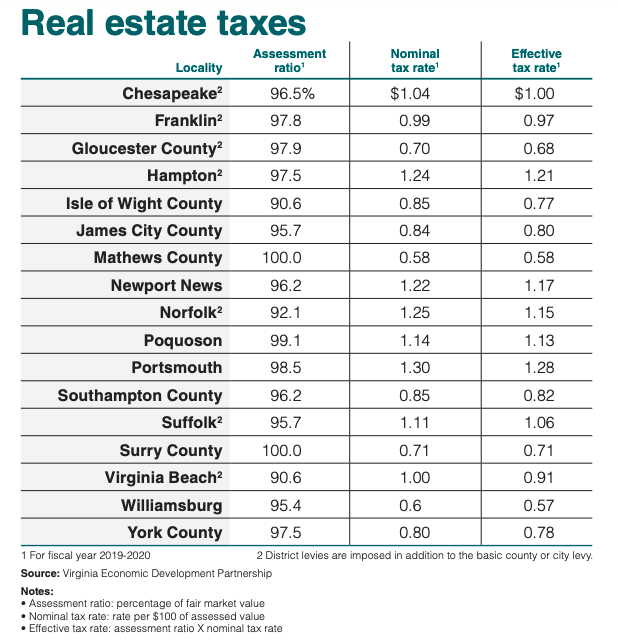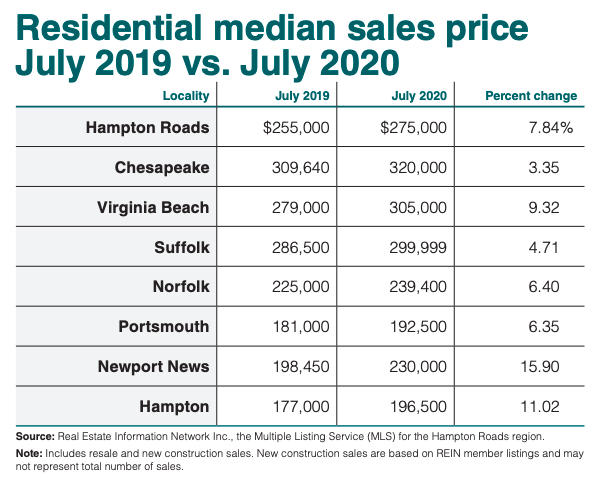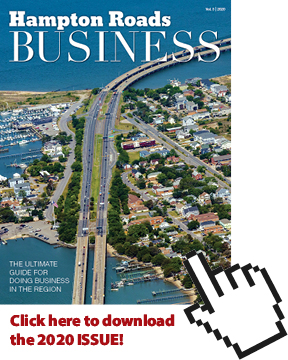Despite dealing with the economic consequences of the COVID-19 pandemic, Southern Virginia is celebrating the development of a resort casino, new investments in the area and several company expansions.
The pandemic has presented localities in the region like Danville with a number of challenges they haven’t seen before, but the city continues to look for opportunities to bring in new companies. Prospect “activity is still strong,” says Corrie Bobe, Danville’s economic development director. “We are seeing projects that have strong financial and aggressive timelines for announcements.”
The new Caesars-branded resort casino that will be built in Danville is expected to bring in a minimum of $400 million in capital investment and the creation of 1,300 jobs. The project includes multiple restaurants and bars, a hotel with 300 four-star guest rooms, a 35,000-square-foot conference center, a 2,500-seat live-entertainment venue, a pool and a spa. It is expected to open in 2023. [See article, Page 32.]
Working together, the city, the town of Hurt and Pittsylvania County landed the manufacturing facility Staunton River Plastics LLC, which will be located in the Southern Virginia Multimodal Park in Hurt. It will be the first tenant at the industrial park, once the site of a Burlington Industries textile mill. The company is investing $34 million to build and equip the approximately 250,000-square-foot plant. The project is expected to create more than 200 jobs over four years and adds to the company’s existing presence in Altavista.
Upholding the commitment it made last October to have its new Virginia plant — formerly occupied by Ikea — in operation by this summer, Morgan Olson LLC started production at its 925,000-square-foot automotive manufacturing facility, where it produces step vans.
Morgan Olson currently employs more than 400 people, and it expects to have 703 employees by the end of 2021.
As for expansions, Litehouse Inc. received a $19.5 million loan from the Danville Industrial Development Authority to expand its facility at Airside Industrial Park, adding a 48,000-square-foot addition for refrigerated manufacturing and warehouse space. The company will add approximately 100 jobs.
The city of Danville is also seeing a lot of activity within several industry sectors, including furniture, manufacturing, food and beverage, metal working, automotive and advanced materials. “We are anticipating we will be able to announce additional new businesses to our region,” Bobe says.
Recruitment activity continues to be strong even with travel restrictions, she adds. “It has required us to be creative with how we are working with clients.”
Danville has tailored the way it services the local business community by providing resources and “access to information to help them through the pandemic,” Bobe says.
Resources include the Small Business Emergency Loan Program, which provides low-interest loans of up to $20,000 that businesses can use toward working capital, marketing and inventory.
The city’s Marketing and eCommerce Grant program provides funds toward paid marketing efforts and e-commerce updates, and the Small Business Rent Relief Grant provides up to $3,000 to cover one month’s rent. The grant programs do not require repayment, and grant amounts have varied.
More than 100 local businesses have been awarded slightly more than $300,000 from the various grant programs, and the program has loaned approximately $130,000 among eight business entities.
“We have helped many of our local businesses weather this storm. When [federal] CARES Act funding became available, it helped further our ability to aid businesses,” says Bobe.
Pittsylvania County started off the year busy, announcing both the Staunton River Plastics project with Danville and the town of Hurt and the expansion by print company Ennis Inc., which invested $800,000 and hired 15 new employees.
Additionally, North Carolina-based Ison Furniture Manufacturing Inc. is investing $3.5 million to acquire and renovate the recently closed A.C. Furniture Co. facility in Pittsylvania County. The project is set to create 150 jobs.
That move spurred the company’s supplier, Dogwood Global LLC, to relocate to a 30,000-square-foot building near Ison, investing $500,000 in new equipment and adding 45 jobs. The company manufactures high-end wood tables and custom furniture frames that will be upholstered by Ison.
In early 2021, Intertape Polymer Group Inc. announced it would expand its Pittsylvania manufacturing operation, investing $45 million and creating 50 jobs.
“We are seeing a lot of activity, especially in food and beverage and automotive. We are also seeing high-end furniture coming back,” says Matt Rowe, the county’s economic development director. “We are staying busy.”
The infrastructure at the Southern Virginia Megasite at Berry Hill continues to evolve. “The Virginia Department of Transportation is designing the roadway and we’ve worked with AEP to have a high voltage transmission line coming into the park,” Rowe says.
Like others in the region, Martinsville-Henry County continues to see prospect traffic despite the pandemic. “We have weathered the storm much better than some,” says Mark Heath, president and CEO of the Martinsville-Henry County Economic Development Corp. “Our manufacturing continues to work through the pandemic. Some manufacturers have seen increased business during the past year.”
The Martinsville-Henry County region scored a win with FerraTex Solutions LLC, a provider of cure-in-place pipe solutions. The company is purchasing the former Compton Wood Products facility in the Bowles Industrial Park in Henry County and investing approximately $1.95 million to renovate and expand the facility. It is anticipated to add 15 jobs.
The Results Cos., a Florida-based call center, announced last September it would add 288 jobs at its Martinsville location and 118 at its office in Stuart, all of which would be full-time positions. In January, Laminate Technologies Inc. said it would invest $4 million to expand its Henry County facility and grow by 42 jobs.
On the international front, yarn and fiber manufacturer Drake Extrusion Inc., a subsidiary of Sweden-based Duroc AB, is investing $6.9 million to expand its operation in Henry County, adding an additional manufacturing facility in a vacant 120,000-square-foot building and adding 30 jobs.
To help ensure future investments, Henry County will receive $1.5 million from the Appalachian Regional Commission to complete a steel natural gas pipeline from the Patriot Line to the Commonwealth Crossing Industrial Park, helping expand the area’s opportunities for large, transformational projects.
Projects in South Boston continue to progress at a steady speed. In 2020, Golden Piedmont LLC invested $11 million to establish Virginia’s first hemp processing and cannabidiol (CBD) oil extraction facility in Houghton Industrial Park, previously home to the former Blue Ridge Beverage distribution center, creating 22 jobs.
Its executives say they will buy all goods from the region and will bring in $15 million to $20 million of hemp this year.
Locally, the town completed a $1.4 million addition to the fire department. “We have the only round-the-clock paid staff in the county,” says Town Manager Tom Raab. “We added three new offices, two bays and three bedrooms.”
There’s also excitement about the completion of Mid-Atlantic Broadband Communities Corp. and Microsoft Corp.’s SOVA Innovation Hub. The 15,000-square-foot, two-story facility is the first new building to be built in downtown South Boston in more than 40 years and is on the site of a former tobacco warehouse built in the 1900s and destroyed by a fire in 2002. As of Feb. 1, the building had opened its doors for coworking clients, taking COVID-19 precautions.
“It will be a real asset for the county,” says Raab. “We’ve definitely been holding our own during this pandemic.”
Related content:

Subscribe to Virginia Business.
Get our daily e-newsletter.






